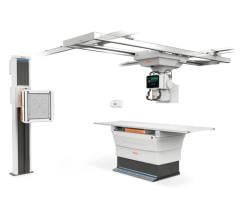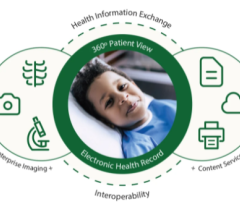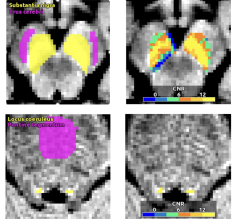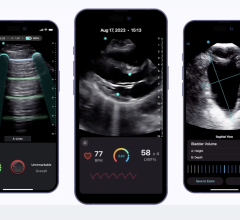
February 2, 2009 - An online survey of 1,888 physicians, medical group executives and staff, released today by Allscripts, concludes that U.S. physician groups are eager to accept a proposed multi-billion dollar package of government loans, grants and incentives designed to promote broader adoption of information technologies such as the electronic health record (EHR).
The survey results reveal consensus among medical groups that funding is critical, with 82 percent of respondents strongly agreeing that the government should provide funding for EHRs via the HITECH Act, a key component of the proposed $825 billion economic stimulus package now under consideration in the U.S. Congress.
“The EHR is the only answer for improved and more efficient medical care,” said Cathie Lentz, practice administrator at Elmwood Center Medical Associates in York, PA, one of the survey respondents. “Unfortunately the cost is out of reach for most physician offices.”
The survey also confirms that existing incentive programs managed by the Centers for Medicare and Medicaid Services (CMS) - designed to encourage hospitals to donate EHRs to physicians and to spur adoption of electronic prescribing (e-prescribing) - have been effective. But on several key issues that are central to the debate underway in Congress, the survey reveals a wide variance in opinions among respondents. This is especially true when it comes to deciding what form of payment the government should provide, whether funding should be targeted toward the purchase of an EHR or incentives for use of an EHR.
“The EHR has demonstrated unequivocally the savings of lives and dollars,” said survey respondent Joel I. Silverman, a physician at Adult Medicine of Broward and Palm Beach, in Deerfield, FL. “We’re overdue for a major shift in how physicians are practicing and are being paid for their efforts.”
As a result, the survey findings clearly suggest the most effective route to achieving widespread EHR adoption lies not in a uniform approach to all physicians, but rather a blended model of incentives that address the unique needs of different physicians in different types of medical groups.
“This survey provides the first comprehensive look at the views of physician practices related to the HITECH Act under consideration in the U.S. Congress,” said Glen Tullman, Chief Executive Officer of Allscripts. “The results confirm our view that providing physicians with the incentives to invest in and use an Electronic Health Record is the single most important action we can take to improve the quality, enhance safety, and lower the cost of healthcare in America. A critical point is that physician practices of different sizes and technical maturities have different needs. If we want to rapidly improve our healthcare system using technology to connect all U.S. physicians to each other, to their patients, and to the latest information in real time, then it is important that Congress recognize the different obstacles to adoption that exist and frame a solution that meets the needs of all healthcare providers.”
The goal of the survey was to gain insight into the perspectives and preferences of healthcare professionals related to the current incentives in place and the new proposed incentives for adoption and utilization of EHRs, as well as privacy and security considerations.
Key findings include:
- Healthcare professionals support government incentives - 82 percent of respondents strongly agree that the government should provide funding for EHRs via the HITECH Act.
- Current e-prescribing incentives are working. Seventy-five percent of respondents to the survey are aware of the current e-prescribing incentives from the Centers for Medicare and Medicaid Services (CMS), and 37 percent are actively participating in the program.
- Current EHR subsidies provided by hospitals are effective. More than 10 percent of practices surveyed have already received an offer from a hospital to help subsidize the cost of an EHR for their group under the Stark Safe Harbor exception. The 2008 CCHIT Incentive Index identified 50 programs nationally involving 115 hospitals that are currently providing funding for physicians. Taken together with the Allscripts survey, this data provides an indication that the current program has gained traction in the market. However the new programs under consideration have the potential to greatly more significant adoption.
- The proposed incentives may drive significant new adoption. Sixty-eight percent of respondents would be likely to participate in the pay-for-purchase proposal under consideration in the stimulus bill, which provides sliding scale financial incentives resulting in payments of up to $40,000 per provider over five years as reimbursement for the purchase of an EHR. Only 2 percent of respondents indicated they would not participate in this program, with the remainder either unsure (25 percent) or unlikely to participate (3 percent).
- Groups without an EHR have equal preference for either a pay-for-purchase or pay-for-use. Respondents from medical groups that do not have an EHR expressed an equal preference for either a pay-for-purchase or pay-for-use approach. Among all groups surveyed, preference for pay-for-purchase decreased in direct correlation with practice size: 47 percent of respondents from groups with between one and three physicians preferred to be reimbursed for purchasing an EHR rather than provided incentives for its use; 32 percent of those from groups with between four and 25 physicians agreed; 20 percent of those from groups with 26 to 100 physicians agreed; and just 18 percent of respondents from groups of 100 or more physicians agreed, with the larger groups strongly favoring utilization incentives.
- Providers are confident in existing privacy and security protections. Sixty-one percent of respondents from groups with an EHR say they want to move forward without waiting for new privacy standards, expressing confidence in their EHR’s existing privacy protections. The results suggest that, while privacy breach will always be a concern, experienced EHR users have faith in current protections including the Healthcare Insurance Portability and Accountability Act (HIPAA), and the EHR certification process managed by the Certification Commission on Healthcare Information Technology (CCHIT).
- Existing EHR users should qualify for incentives, too. Seventy-seven percent of small-group respondents and 82 percent of large-group respondents (81 percent overall) recommend incentives from the government to retroactively cover the cost of existing EHR implementations.
- Medical groups should be able to use funding to upgrade existing EHRs. Seventy-three percent of all respondents support government funding to upgrade existing EHR implementations.
Based on these results, the survey suggests that the new federal programs now under consideration in Congress would be best served by:
- Providing up-front grants for EHR purchase as well as ongoing incentives for utilization, as groups with different characteristics appear to be motivated by different approaches.
- Retroactive funding for practices that have already adopted EHRs will drive utilization of the EHR the benefits accrue to patients, providers and to the federal government.
“When I started my solo practice in 2004, I took out extra loans to purchase an EHR, which cost around $80,000 including computers and server,” said respondent Chris Buchanan, a physician at Brazos Urology Clinic in Granbury, TX. “I think it would be unfair to pay doctors to purchase new EHR systems without rewarding doctors who have had them for years. The fact that I have a system improves the quality of the care that I deliver through reduced errors, 24-hour access to patient charts when on call, etc. Therefore an incentive should be given to all doctors who use EHRs.”
- Helping practices with older or low-functioning EHRs to upgrade to more current or fully-functioning systems as many early adopters may not have the capital to meet the current standards that may be required in a pay for performance or pay for use program.
- Relying on existing privacy protections for patient information rather than waiting for new policies to be agreed upon, with the understanding that there are currently extensive security standards built into the CCHIT certification process
A white paper detailing the survey’s findings in more depth can be downloaded for free at: www.allscripts.com/connect.
The survey invitation was sent via email to 50,000 healthcare professionals in more than 13,000 medical groups. Conducted in January by Allscripts, the Internet survey of 18 questions generated 1,888 respondents, including.
For more information: www.allscripts.com

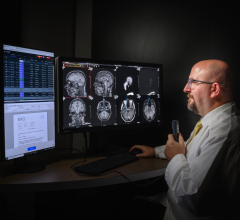
 June 28, 2024
June 28, 2024 

